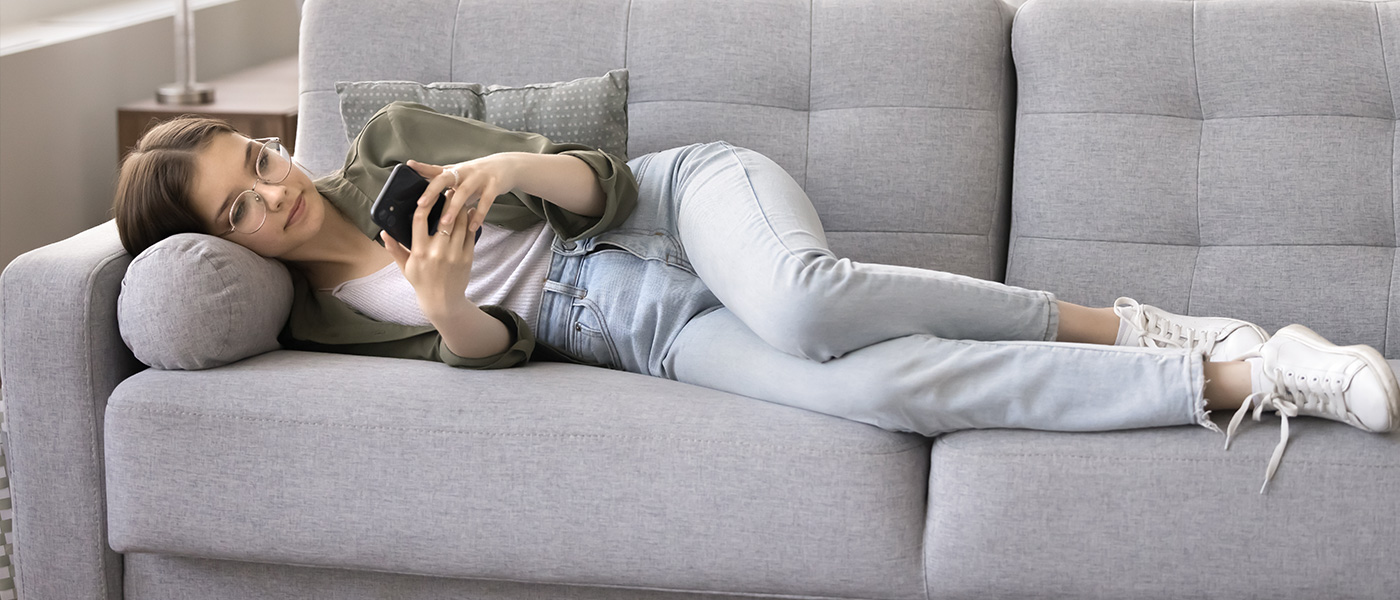
Article at a Glance
It’s time that parents wake up to the fact that sleep deprivation among youth is largely triggered by increased dependence on smartphones and social media.
The following statistics may provide insight into why it’s a rising issue:
Utah Valley Pediatrics is shining a light on the link between myriad teen issues and teen use of smartphones and social media. Today, we’ll look at the symptoms and causes of teen sleep deprivation and what parents can do to alleviate the side effects of too much screen time.
Teens today are sleeping less than ever. The American Academy of Sleep Medicine recommends that teens (ages 13 to 18) should get eight to 10 hours of sleep per night, and younger children (ages six to 12) should sleep nine to 12 hours. But that’s not what Dr. Stephen W. Lee, who works out of Utah Valley Pediatrics’ American Fork office, is seeing in his clinic.
“Common sleep complaints among preteens and teens often include difficulty falling asleep, frequent night awakenings, and insufficient sleep duration,” says Lee.
He points to several contributing factors, including academic demands, biological shifts during puberty, and—more recently—screen use at night.
One of the most direct impacts of smartphone use is simple time displacement. Teens stay up late texting friends, watching TikToks, or scrolling social feeds.
“Time spent on screens often displaces time that could be spent sleeping,” Lee says. “This is particularly problematic when screen use extends into the late evening or night.”
Many social media platforms are engineered to keep users engaged—through infinite scroll, likes, and notifications—making it difficult for teens to put their phones down.
The effects aren’t just behavioral; they’re biological too.
“The light emitted from screens, particularly blue light, can suppress melatonin production, a hormone crucial for regulating sleep-wake cycles,” says Lee. This suppression delays sleep onset and shortens sleep duration.
Screens also overstimulate the brain.
“Engaging with stimulating content, such as social media or video games, can increase cognitive arousal, making it harder for the brain to wind down and transition into sleep,” Lee says.
Even when teens do fall asleep, their devices can still be a problem. Notifications buzzing at night—or the temptation to check a phone at 2 a.m.—can lead to fragmented, poor-quality rest.
“Nocturnal mobile phone-related awakenings are linked to restless sleep and problems falling asleep,” Lee explains. “Frequent notifications or the habit of checking devices during the night can lead to nocturnal awakenings, which disrupt sleep continuity and contribute to poor sleep quality and daytime sleepiness.”
Sleep is more than just rest—it’s a critical pillar of health. Without enough of it, everything suffers.
“Chronic sleep deprivation is linked to anxiety, depression, and learning difficulties in teens,” says Lee.
According to a report by the Centers for Disease Control and Prevention, teens who get fewer than seven hours of sleep per night are twice as likely to report symptoms of depression and nearly three times more likely to consider suicide.
Sleep deprivation can also affect memory, focus, immune function, and emotional regulation—areas especially vital during adolescence.
“High screen time and nocturnal awakenings are associated with increased daytime sleepiness,” he adds, which often spills over into academic struggles and social friction.
So how can parents tell if a teen’s tech habits are cutting into their sleep?
“Parents should watch for several warning signs,” says Lee. These signs include the following:
For families ready to tackle nighttime device use, Lee offers a range of practical strategies.
“Setting specific guidelines for screen use, such as no phone use after 9 p.m., can help reduce nighttime device use,” he says. Parents should enforce rules consistently while modeling good behavior themselves. “Demonstrating healthy screen habits can encourage teens to follow suit.”
He also recommends making bedrooms screen-free zones and encouraging calming activities before bed—like reading, listening to music, or mindfulness exercises. “These activities can help reduce presleep arousal and improve sleep quality,” he says.
If teens push back, collaboration helps.
“Allowing teens to participate in setting screen time rules can increase their buy-in and reduce resistance,” says Lee. He also encourages families to explore app-based solutions that limit usage automatically and to address any underlying anxiety or social pressures driving excessive use.
Ultimately, it’s not about banning devices—it’s about building boundaries.
Sleep is not a luxury for teens—it’s a foundation for their mental, physical, and emotional well-being. Smartphones aren’t inherently harmful, but when they encroach on the nighttime hours, they steal something vital.
With consistent rules, tech-free routines, and open conversations, families can help teens reclaim their rest—and wake up to healthier, more balanced lives.
For further questions on sleep deprivation, consult any of our 33 pediatricians at 12 convenient locations across Utah Valley and beyond.

The NCQA is a private, nonprofit organization dedicated to improving health care quality. Learn more.